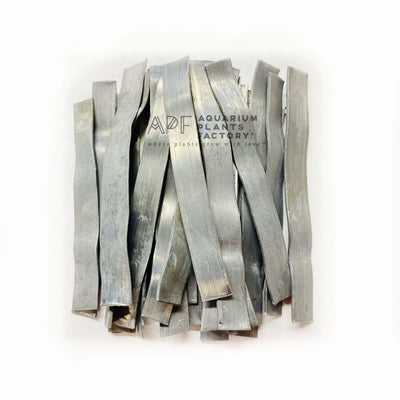The Importance of Nutrients for a Planted Aquarium: A Guide to Macronutrients

The Importance of Nutrients for a Planted Aquarium: A Guide to Macronutrients
A thriving planted aquarium requires more than just light and water. Plants need a variety of essential nutrients to grow and remain healthy. Aquarium Plants Factory, a leading supplier of freshwater aquarium plants, knows the importance of providing these essential nutrients to your plants. In this blog, we'll discuss the benefits of macronutrients and their role in supporting the health of your planted aquarium.
What are Macronutrients?
Macronutrients are the essential nutrients that plants need in large amounts to grow and remain healthy. These nutrients include nitrogen (N), phosphorus (P), potassium (K), calcium (Ca), magnesium (Mg), and carbon (C). These nutrients are essential for plant growth, reproduction, and overall health.
Phosphorus (P)
Phosphorus is an important macronutrient that plays a role in root development, energy storage, and flower production. A lack of phosphorus can cause stunted growth and yellowing of leaves. In a planted aquarium, phosphorus can be supplied through the use of specialized fertilizers or by adding a source of organic matter, such as fish waste or decomposing plant material, to the substrate.
Potassium (K)
Potassium plays a key role in plant growth, water uptake, and disease resistance. It is particularly important for the development of strong stems and roots. A lack of potassium can cause stunted growth and yellowing of leaves. Potassium can be supplied through the use of specialized fertilizers or by adding a source of organic matter, such as fish waste or decomposing plant material, to the substrate.
Nitrogen (N)
Nitrogen is essential for plant growth, leaf production, and overall health. A lack of nitrogen can cause yellowing of leaves and slow growth. In a planted aquarium, nitrogen can be supplied through the use of specialized fertilizers or by adding a source of organic matter, such as fish waste or decomposing plant material, to the substrate.
Carbon (C)
Carbon is essential for plant growth and metabolism. It is the building block of all organic compounds and is used by plants to produce energy. In a planted aquarium, carbon can be supplied through the use of CO2 injection or by providing adequate lighting.
Calcium (Ca)
Calcium is an important macronutrient that is essential for cell division, cell wall formation, and overall plant health. A lack of calcium can cause stunted growth, yellowing of leaves, and even death. In a planted aquarium, calcium can be supplied through the use of specialized fertilizers or by adding a source of calcium, such as crushed coral or limestone, to the substrate.
Magnesium (Mg)
Magnesium is an important macronutrient that plays a role in photosynthesis, energy storage, and overall plant health. A lack of magnesium can cause yellowing of leaves and stunted growth. In a planted aquarium, magnesium can be supplied through the use of specialized fertilizers or by adding a source of magnesium, such as Epsom salts, to the water.
In conclusion, macronutrients play a crucial role in the health and growth of your planted aquarium. By providing these essential nutrients, you can support the growth and beauty of your plants, creating a thriving and beautiful environment for your aquatic creatures. Aquarium Plants Factory offers a wide range of high-quality, freshwater plants and the necessary nutrients to support their growth and health. Visit our website today to learn more and start creating a stunning planted aquarium.



![A Bucephalandra Surprise Tissue Culture [ Premium Full Bag / Cup ] - Mystery Box](http://aquariumplantsfactory.com/cdn/shop/products/a-bucephalandra-surprise-tissue-culture-premium-full-bag-cup-mystery-box-765676_{width}x.png?v=1700726730)

















Leave a comment